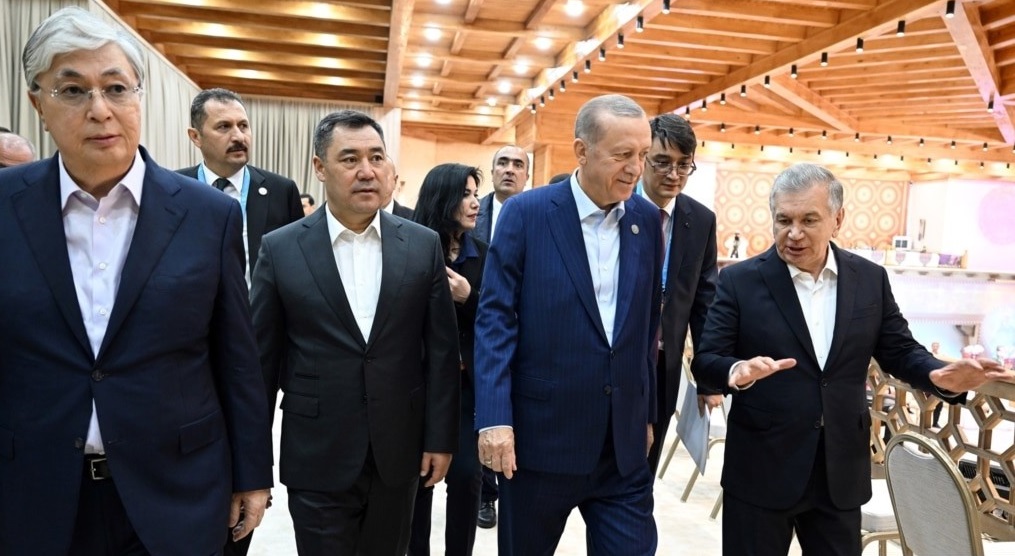Theatre of the Turkic countries at the Ašgabat festival
Collectives from Azerbaijan, Kazakhstan, Kyrgyzstan, Tajikistan, Tatarstan, Turkey and Uzbekistan performed the traditions, stories and life of the Turkic peoples in Turkmenistan, taking up ancient texts and proposing new elaborations.
Ashgabat (AsiaNews) - In Ashgabat, the capital of Turkmenistan, the IV International Festival "Theatrical art of the era of happiness" was held from 14 to 16 November, in which theater collectives from various Turanian countries, Azerbaijan, Kazakhstan took part , Kyrgyzstan, Tajikistan, Tatarstan, Turkey and Uzbekistan. Part of the performances took place in the new model city of Arkadag, under construction under the supervision and in honor of former president Gurbanguly Berdymukhamedov, current president of the Turkmen senate.
According to the tradition of these festivals, the opening ceremony presided over by the president-son Serdar was held at the Main Drama Theater of Ashgabat, named after “St. Turkmenbaši the Great", the title attributed to the first post-Soviet president of Turkmenistan, Saparmurat Nijazov, called the Turkmenbaši, that is, the "leader of all Turkmen". The theater groups paraded in front of the facade of the building, accompanied by the music and dances of the "Mollanepes" student theater, named after a nineteenth-century Turkmen poet.
All the shows represented the traditions, stories and life of the Turanian people, taking up ancient texts and proposing new elaborations. The opening was shown from the stage of the Köňüller kelamy to the new Arkadag Drama Theater, dedicated to the life and works of the great Turkmen poet and thinker Makhtumkuli Fragi. At the national theater in Ashgabat, this was followed by a performance by the group from the city of Taldyqorğan, one of the most representative centers of Turanian culture in Kazakhstan, on the theme "The fate of the defenseless".
Tajik Youth Theater “M. Vakhidov” proposed the show “A night away from the Homeland”, linked to the experiences of the many migrants, both working and otherwise, from these countries, while the musical-dramatic theater of Khwarezmia from Uzbekistan staged the play “Šasenev and Garib ”, other figures from the regional tradition taken in many versions, from fairy tales to films, a story of love and marriage in which money, wealth and fame are contrasted with the strength of art, poetry and music.
An original performance was also dedicated to the poet Makhtumkuli by the dramatic theater of the Batken region in Kyrgyzstan, while the dramatic art theater of the Russian republic of Tatarstan proposed a work called Prišlyj, “The Stranger”, on the theme of the difficult coexistence between ethnic groups, increasingly relevant due to migratory phenomena and the upheavals of conflicts.
Many other performances from all countries enriched the festival, which concluded with a round table on the issues of the development of theatrical culture and the need for collaboration and dialogue in this area between all interested peoples and ethnic groups. In the end, all the participants visited the museums and monuments of the capital and the new "smart-city" of Arkadag, to become even more aware of the desire for greatness and the importance of Turanian culture in the contemporary world.







.png)










